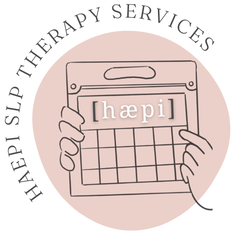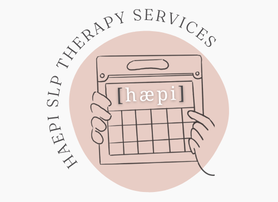|
Now that I've been providing virtual & fly-in services to remote Indigenous communities in Northern Ontario for 2.5 years, I have learned and am continuing to learn about healthcare & services up North... and how incredibly hard it can be to access them.
Clinicians either need to travel in, or families have to travel out, for appointments. But flights are expensive - it costs less for two people to fly round trip to Europe than for one round trip flight within the same province. Weather plays a huge factor on whether flights are cancelled, and appointments missed. Specialist appointments that are missed might not be rescheduled for 6 months... I have seen all of these situations happen. Speech therapists are trained extensively on administering tests and analyzing how children are progressing with their speech and language skills, but there are many cases where standardized tests cannot be used. This is because these tests are typically created for white, middle-class American children. Using these tests for Indigenous children is, evidently, not appropriate. There are currently no standardized tests that are normed for Indigenous children - which automatically puts them at a disadvantage and is not functional. These tests do not take into consideration geographical dialects, their second language learning, or parts of language that may be more meaningful to these populations (e.g., oral story telling). As a Metis clinician, I am proud to work as an SLP in Northern communities, and I feel that my job is to listen and make suggestions where I am able. These suggestions are: to build on the children's strengths, make appropriate referrals, and invest in the inherent capacity within the community, so they can continue to help their students grow. These lessons have been invaluable. I’m honoured to keep learning and growing thanks to these experiences. by Halle Demchuk, SLPPaediatric SLP | GLP-Trained Clinician | Owner of HAEPI SLP
Language matters, and as an Indigenous SLP who is white-presenting with white privilege, it I often hear this word in conversation and media.
This is a really important reminder if "savage" is part of your vocabulary, that this word is a derogatory term that was used to describe Indigenous people in official documentation when they were being colonized in North America both in the United States and Canada. It was used to mean uncivilized, violent, and brutal. It is a racial slur, not un-similar to the N-word. So, if this word is part of your vocabulary, I urge you to remove it and to educate others on why it is inappropriate as well. by Halle Demchuk, SLPPaediatric SLP | GLP-Trained Clinician | Owner of HAEPI SLP
Really inspired by everyone's vulnerability and human-ness with this trend, and I think the messaging is so important.
Social media can make us feel like everyone else "has it all together" when that is very rarely the case. These things will continue to be stigmatized (and hidden) unless we talk about it. by Halle Demchuk, SLPPaediatric SLP | GLP-Trained Clinician | Owner of HAEPI SLP
Did you know we offer speech & language check-ins for babies & toddlers aged 10-36 months?
Our SLPs, Halle & Megan, can assess your child's pre-linguistic, speech, language, and play skills and leave you with strategies and recommendations to facilitate development in these areas. These check-ins can help ensure your child has access to early intervention if warranted, and well as referrals to other professionals if needed. Sessions may be one-time or occur periodically (e.g., once a month; every few months) to follow your child's development. Sessions with a speech language pathologist are eligible for reimbursement by private insurance plans! Check with yours today to see if you have coverage. Questions? Drop them below, send us a message, or inquire here. by Halle Demchuk, SLPPaediatric SLP | GLP-Trained Clinician | Owner of HAEPI SLP
Speech therapy often relies heavily on reinforcement, so how do we balance when we can use positive reinforcement in ways such as token boards and sticker charts, and when should we steer clear?
Using a neurodiversity-affirming lens, this is all going to depend on WHO you are working with, WHAT your goals are, and THE MOTIVATION behind the goals. Token boards and positive reinforcements are not inherently bad tools, and I use them myself in my daily life (as they are INTRINSICALLY motivating for me!). I also often do include reinforcement activities when working with neurotypical children on goals such as speech sounds. The problem is when we use these tools to positively reinforce neurotypical behaviours or communication styles in children who are not neurotypical. This can be harmful because we are relying on extrinsic reinforcement for something as human as communication, of which there are many styles and methods, and one is not better than the other. We are inadvertently telling our children that their style is not welcome and they have to conform/adapt/mask to ours. So what can we do instead? We want to honour TOTAL communication from the child. We follow the child's lead and interests, and incorporate their interests into sessions to provide that intrinsic motivation. Communication shouldn't be work or uncomfortable for our children, and our goal should be to provide an environment where communication and connection are intrinsically motivating. Do you have questions? Drop them below! by Halle Demchuk, SLPPaediatric SLP | GLP-Trained Clinician | Owner of HAEPI SLP |
The HAEPI BlogCheck here for HAEPI updates, helpful SLP information, free resources, articles, and more!
Archives
June 2024
Categories
All
|
Empowering Happy Communicators |
get in touch |
Quick Links |
© HAEPI SLP THERAPY SERVICES.
HAEPI SLP Therapy Services is proudly neurodiverse, Indigenous-owned, and woman-operated.



